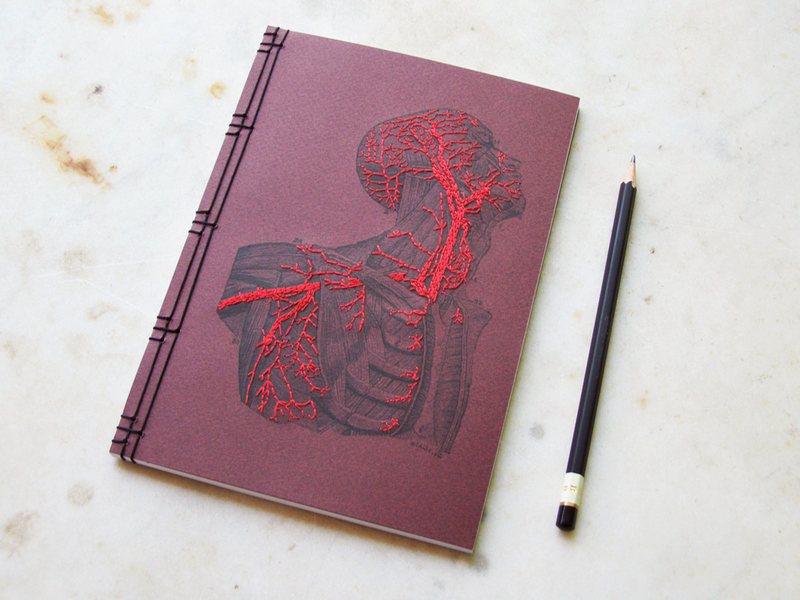Cuadernos bordados
Qué bonitos estos Notebooks Adorned with Hand-embroidered Blood Vessels, Insects, and Geometric Patterns:

Se pueden ver, y comprar, muchos más en Fabulous Cat Papers
. Hay varios geométricos espectaculares.
Qué bonitos estos Notebooks Adorned with Hand-embroidered Blood Vessels, Insects, and Geometric Patterns:

Se pueden ver, y comprar, muchos más en Fabulous Cat Papers
. Hay varios geométricos espectaculares.
Practice Does not Make Perfect examina el mito persistente de que para lograr la excelencia en una actividad es preciso invertir cierto número de horas en su práctica. La realidad resulta ser mucho más complicada y si bien es preciso cierto tiempo de práctica, ese tiempo varía enormemente entre individuos. Es más, la práctica resulta no ser el elemento más importante –aunque tiene su peso– y otros factores (como la edad de iniciación o predisposición genética) resultan ser mucho más determinantes.
De la idea de que el talento es en buena parte innato se pueden extraer muchas conclusiones, algunas más interesantes que otras y algunas más caritativas que otras. Y hay que reconocerle a los autores que se atrevan a discutir varias de ellas. Pero en cualquier caso, les doy la razón de que el mito de las 10.000 horas acaba creando un clima social que impide la igualdad de derechos entre las personas. Si uno cree que basta con 10.000 horas de prácticas para dominar una actividad y hace caso omiso de cualquier otro factor, siempre puede concluir que el fracaso de los demás es resultado únicamente de su falta de esfuerzo y por tanto merece la posición que ocupa en la vida. Es, digamos, la cara más fea del mito de la meritocracia:
The second reason we should not pretend we are endowed with the same abilities is that doing so perpetuates the myth that is at the root of much inaction in society —the myth that people can help themselves to the same degree if they just try hard enough. You’re not a heart surgeon? That’s your fault for not working hard enough in school! You didn’t make it as a concert pianist? You must not have wanted it that badly. Societal inequality is thus justified on the grounds that anyone who is willing to put in the requisite time and effort can succeed and should be rewarded with a good life, whereas those who struggle to make ends meet are to blame for their situations and should pull themselves up by their own bootstraps. If we acknowledge that people differ in what they have to contribute, then we have an argument for a society in which all human beings are entitled to a life that includes access to decent housing, health care, and education, simply because they are human. Our abilities might not be identical, and our needs surely differ, but our basic human rights are universal.